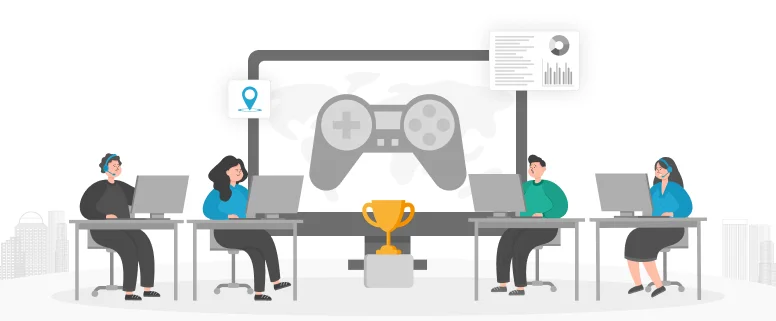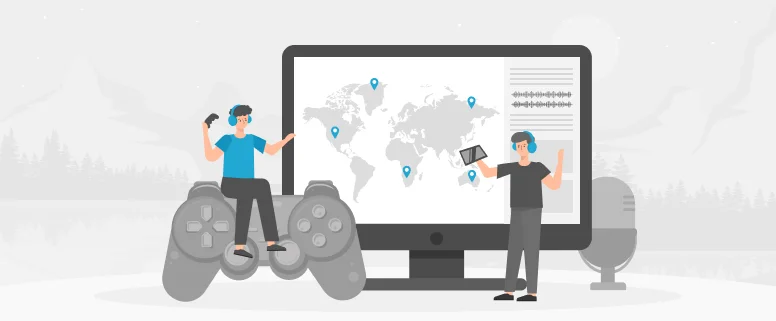Question: Could you please advise me if you have any experience of working in video games? We are always looking to expand our resources for Asian languages. Could you explain to me in more detail the experience your team has had (projects/ Languages etc)? Also a brief of your process on how to efficently localize game is appreciated.
Answer: Thank you very much for your inquiry. You are just reaching the right person as we are expert in video game localization into Asian languages. We localized a lot of games and apps. Most of the games have MAU around 50k-100k. The following is a short list of game translation projects we finished:
* XBox Time-splitter
* XBox Time-splitter 2
* XBox Hitman 2
* ZODIAC ONLINE, developed by Playcoo from Taiwan(Total:800K Chinese characters,we do part of the translation)
* Description for Samurai II: Vengeance by MADFINGER Games,6 languages including:German Italian Japanese Chinese Simplified French Russian
*A social game from US for Asian market with total 50,000 source word, Target languages: Chinese Simplified, Chinese Traditional, Japanese, Korean
*A web-based game for Southeast Asia market with total more than 80,000 source words, Target languages: Thai
*A flash online game from Singapore with around 5,000 source words, Target languages: Chinese Simplified
*Took part in a 3D racing car game as QA with total more than 15,000 source words, Target languages: Chinese Simplified, Chinese Traditional
*2 Facebook games from East European for Korean market with total about 60,000 source words.
*A web-based game for Arabian market with total 200,000 source words.
*A very famous Facebook game from Europe with main Asian languages
In summary, we have a very strong team working on video games for over 5 years, so we believe that we could be your reliable partner for video games translation.
As for how to localize games efficeintly, you might find the following article useful:
How to Localize Games: An Interview with European Developer Wooga
(Source: https://www.insidesocialgames.com/2010/07/29/how-to-localize-games-an-interview-with-european-developer-wooga/)
By Chris Morrison, July 29th, 2010
In two previous stories on developers internationalizing their games, we’ve focused on the big Asian markets. This week we’re turning our attention to Europe in an interview with Wooga CEO Jens Begemann.
Wooga is a German company, but its target market includes most of the Western world. From the beginning of development, Wooga works on localizing its content for a half-dozen languages, reaching almost 400 million of Facebook’s total 500 million users. The company currently has three games out: Bubble Island, Brain Buddies and Monster World.
Inside Social Games: How many languages do you localize your games for?
We used to do more than we do today, including the Philippines and Indonesia. We’re not doing those anymore for three reasons.
First, most users in these countries don’t monetize so well; second, many of those people use Facebook in English; and third, the user numbers are huge, but many people use Facebook on mobile only, not the web. So at the moment we’re doing English, French, Italian, German, Spanish and Turkish.
ISG: Are there any more markets you’re potentially interested in?
All of our current translated language also give us South America, Canada and so forth. What we’re watching most closely at the moment is Brazil, but Facebook doesn’t yet have critical mass there yet.
ISG: What about Russian or languages from the Eastern European countries?
My impression is that the people in those countries are using English, and the markets also aren’t very large. The markets of interest in that region would be Poland and Russia, but Facebook is not as large as their own local social networks.
Read Also: China gaming market will rocket up again!
ISG: What are the components to localization for those markets?
Localization is about translation, then about local customer care. We do local fanpage management and community management. We don’t do local payments, because we use Facebook Credits exclusively.
The one thing we do that’s very special is localizing virtual goods. For example, a football in America is an egg, in Europe it’s round – there are plenty of differences. We believe that translating isn’t enough — local tastes and culture adoption are really important.
ISG: How do you handle translation?
We’re a big believer that you shouldn’t develop the game in one language and then translate. Translation and adapting to local culture is part of development. We’ve got six native speakers, one for each language, who are part of development.
We do everything in-house. That’s what I learned at my last company [Jamba] – if you want really high quality and speed, do it yourself.
ISG: Do the same people who handle translation do the community management?
They’re not alone, but for every language we’ve got one country manager running a team.
ISG: What’s the strategy behind localizing virtual goods?
If there’s a national holiday that’s only in one specific region, we do virtual goods for it. At the moment we target it country-wise – we don’t make it more targeted because experience tells us that people travel. Someone might have grown up in Bavaria and moved to Hamburg, for example.
Take a look at how we helped our client by localizing their project for Gaming Industry. Click here to read the complete case study
Our goal from day one was to be an international company. If we create a new video game, we immediately consult our country managers on what the specifics should be.
The biggest problem if you’re not doing it that way is not the added investment of localization, it’s slowing down your core team. If you build a game and then ask how you can adapt it to another market, there are all kinds of features that come up that require you to reposition.
For example, English is a very short language – all the words in German are longer, and you need more space for them. If you build your company with localization in mind, I’d guess the added investment is 10 to 20 percent. If you have to go back later to change the game, it can really be a problem.



